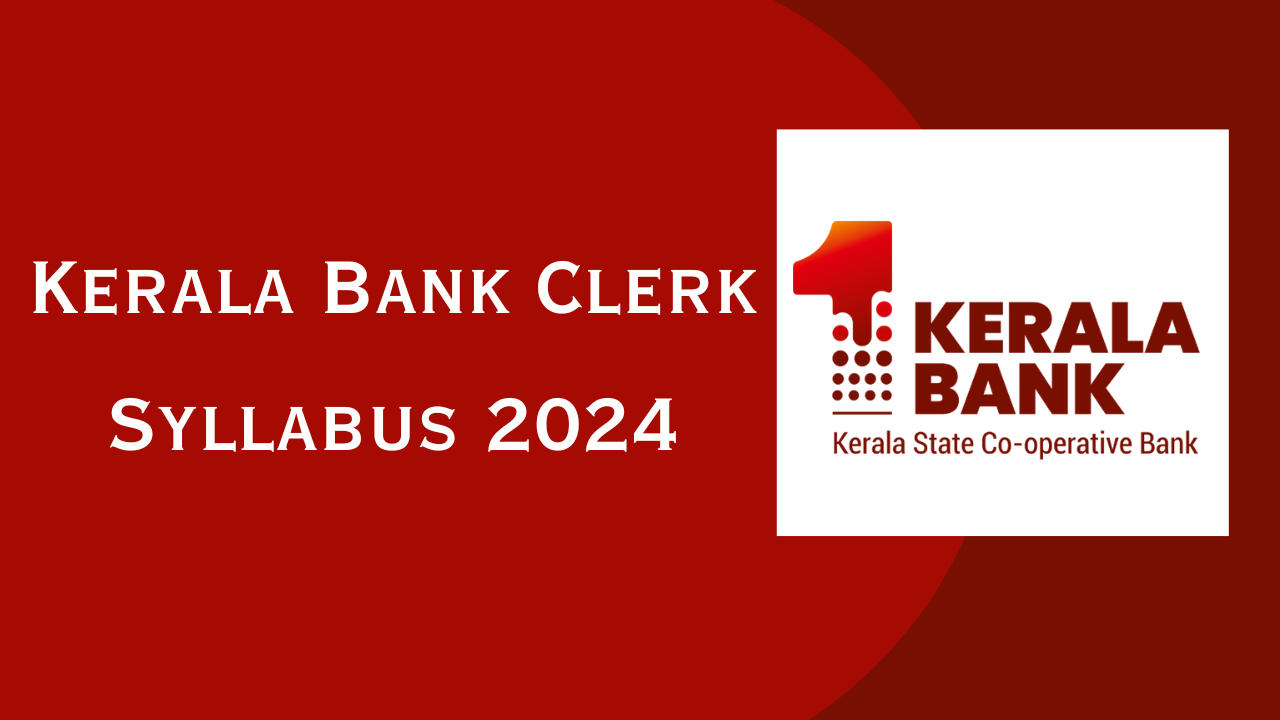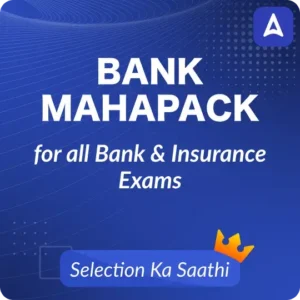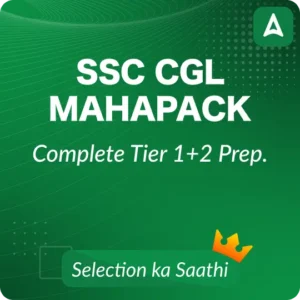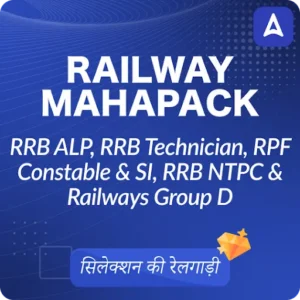Kerala Bank Clerk Syllabus 2024
The Kerala Public Service Commission is going to organize the Kerala Bank Clerk Exam 2024 for which the Kerala Bank Clerk Syllabus 2024 is released along with the notification on the official website of KPSC at www.keralapsc.gov.in. Candidates can now download their syllabus start their preparation for the upcoming exam and score good marks in the exam. In the below article, we have provided the detailed syllabus along with the Exam Pattern.
Kerala Bank Clerk Syllabus
The Kerala Bank Clerk Exam 2024 is conducted to recruit eligible candidates for the post of Clerk in Kerala Bank for which 479 vacancies are announced. The time to complete the exam is 1 hour 30 minutes. Candidates will get 1 mark for every correct answer and 0.33 marks will be deducted from every incorrect answer. Candidates can now start their preparation with the help of the Kerala Bank Clerk Syllabus 2024.
Kerala Bank Clerk Exam Pattern 2024
The Kerala Bank Clerk Exam Pattern 2024 is also important to know. Candidates will get information about the question pattern, mark distribution, and how hard the paper will be. The exam pattern is as follows
- The will be held in objective types and multiple choice questions.
- There will be a total of 100 questions.
- The time duration to complete the exam is 1 hour 30 minutes.
- The negative mark for every incorrect answer will be 0.33 marks.
| Kerala Bank Clerk Exam Pattern 2024 | |||
| Parts | Subjects | Marks | Duration |
| Part-I | Co-Operation | 50 | 1Hour 30 Mins |
| Part-II | Banking | 40 | |
| Part-III | Cyber Laws | 10 | |
| Total | 100 | 1Hr. 30 Mins | |
Kerala Bank Clerk Syllabus 2024
In the below article, we have provided the Kerala Bank Clerk Syllabus 2024 in details. All the topics given are important for the exam. Candidates must complete all the topics to score good marks in the exam. Check the detailed bifurcation of the Kerala Bank Clerk Syllabus in the table below.
Kerala Bank Clerk Syllabus 2024: Part-I Co-operation (50 Marks)
| Sl.No | Topics | Marks |
| 1 | Co-Operation and other economic systems:
|
5 |
| 2 | Evolution and development of cooperative principles:
|
5 |
| 3 | Types of Cooperatives in India and in Kerala
|
7 |
| 4 | Management and working of major cooperative organizations and institutions in aid of cooperatives:
|
5 |
| 5 | Cooperative audit:
|
6 |
| 6 | Issues in cooperative management:
|
6 |
| 7 | Settlement of disputes:
|
5 |
| 8 | Sources of funds:
|
5 |
| 9 | Cooperative Legislation in India and in Kerala:
|
6 |
Kerala Bank Clerk Syllabus 2024: Part-II Banking: (40 Marks)
| Sl.No | Topics | Marks |
| 1 | Commercial Banking:
|
4 |
| 2 | Central Banking:
|
4 |
| 3 | Indian Commercial Banking- Pre- Liberalisation period:
|
4 |
| 4 | Indian Commercial Banking – Post Liberalisation:
|
4 |
| 5 | Banking Legislation in India:
|
4 |
| 6 | Practices of Banking:
|
4 |
| 7 | Law relating to Negotiable Instruments:
|
4 |
| 8 | Agriculture and Micro Finance by banks:
|
4 |
| 9 | Technological Advances in Banking :
|
4 |
| 10 | Recent Trends in Indian Banking:
|
4 |
Kerala Bank Clerk Syllabus 2024: Part-III IT & Cyber Laws (10 Marks)
| Sl No | Topic |
| 1 | Hardware:
|
| 2 | Software:
|
| 3 | Computer Networks:
|
| 4 | Internet:
|
| 5 | Cyber Crimes and Cyber Laws
|
Kerala Bank Clerk Syllabus 2024 Download PDF
The Kerala Bank Clerk Syllabus 2024 is now available on the official website of the Kerala Public Service Commission at www.keralapsc.gov.in. Candidates can now visit the official website or use the direct link provided in the article below.




 Kerala PSC Industries Extension Officer ...
Kerala PSC Industries Extension Officer ...
 Kerala PSC Staff Nurse Grade - II Previ...
Kerala PSC Staff Nurse Grade - II Previ...
 Kerala PSC Field Assistant Previous Year...
Kerala PSC Field Assistant Previous Year...




 Adda247 Job portal has complete information about all Sarkari Jobs and Naukri Alerts, its latest recruitment notifications, from all state and national level jobs and their updates.
Adda247 Job portal has complete information about all Sarkari Jobs and Naukri Alerts, its latest recruitment notifications, from all state and national level jobs and their updates.